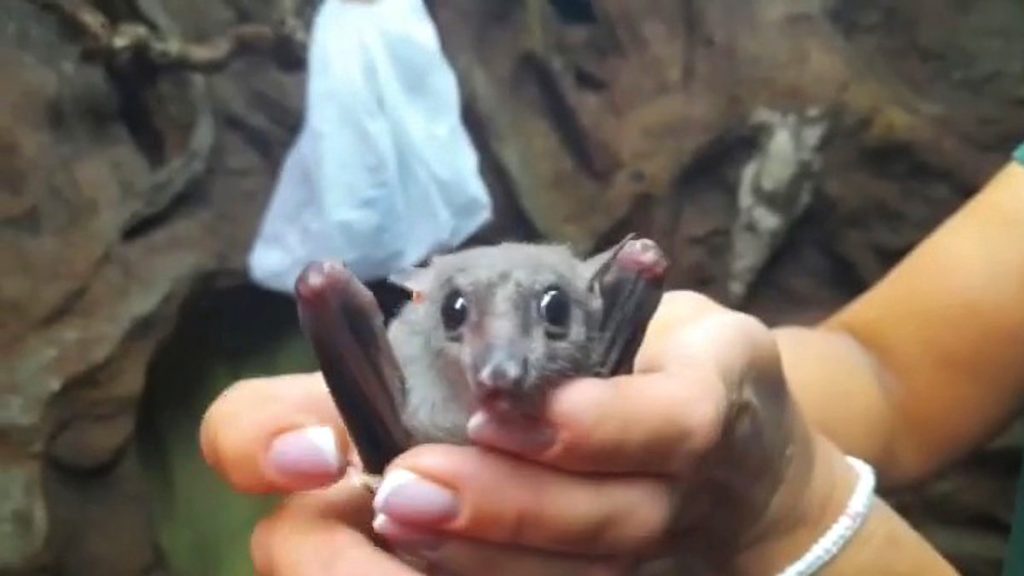MOSCOW — Two Egyptian fruit bat babies, born in July last year at the Moscow Zoo in Russia, are receiving regular health and development check-ups by the zookeepers to monitor their growth.
Marsh and Tango, the two bat babies, are already eight months old and growing rapidly. One of their examinations regularly to monitor their development was inside their enclosure at the zoo on March 25.
“This is our Tango,” aid the zoologist in the video. “Look how much she has grown! She’s unrecognizable. Measurements show that she is almost mature. She has to gain another 10 grams (0.2 pounds), and she will be practically an adult.”
In the video, the zoologist could be seen measuring one of the cub’s wings and carefully examining the rest of its small body to check for any irregularities.
She then gently rolls the fella into a piece of thin cloth and briefly places it on a scale to check its weight.
Marsh, the other bat baby, has also become a mature and healthy young bat. He weighs 106 grams (0.23 pounds), and his wings measure 8.7 centimeters (3.4 inches).
“They are already completely independent. They fly well and eat adult food,” one of the zoologists said.
The Egyptian Fruit bat (Egyptian Rousette) is a bat species found in Africa, the Middle East, the Mediterranean, and the Indian subcontinent.
An intriguing fact about this highly social species that usually reside in colonies with thousands of other bats is that they have developed a unique vocalization system to communicate and function in their environment.

At night, in search of food, these bats can fly up to 40 kilometers (24 miles). They mainly feed on various fruits such as figs, oranges, dates, and bananas, hence their name. They usually eat only fully ripe and juicy fruit, chewing it for a long time, sucking in all the juice, and spitting out the solid remains.
The first peak breeding season is from spring through summer, while the second is from fall through winter. Births occur towards the end of each breeding season. Female Fruit bats give birth to only one offspring, on average, after a gestation period of 105–120 days.
Males are typically larger than females, with a total body length ranging from 14 to 19.2 cm, while females range from 12.1 to 16.7 cm. Adults may weigh 80 to 170 g and have a wingspan close to 60 cm. The forearm varies between 85 to 101.9 mm in males and 88.1 to 99 mm in females.
(Edited by Vaibhav Vishwanath Pawar and Gaurab Dasgupta)
The post VIDEO: Batter And Batter: Zoo Shows Off Cute Fruit Bat Babies appeared first on Zenger News.



